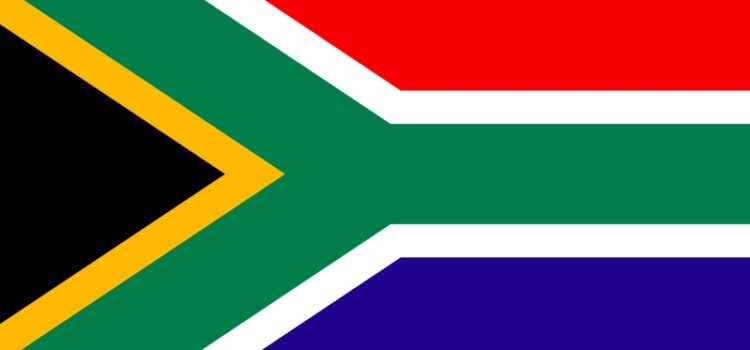
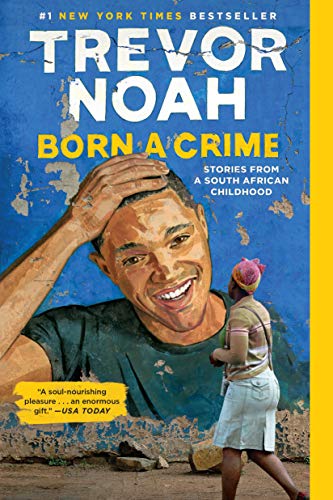
This article is an excerpt from the Shortform summary of "Born a Crime" by Trevor Noah. Shortform has the world's best summaries of books you should be reading.
Like this article? Sign up for a free trial here .
Who are the Zulu and Xhosa? What is the history of the tension between the two communities?
When comedian Trevor Noah was growing up in South Africa, the Zulu and Xhosa rivalry was strong and potentially deadly. We’ll briefly cover the history of the Zulu-Xhosa feud and look at how it affected Noah’s childhood.
Zulu and Xhosa: Tensions Within the Black Community
Apartheid was used to breed separation within the black community. These efforts kept the black population, almost five times larger than the white population, in a state of disunity to create a contentious environment.
Before apartheid, blacks lived within different tribes, each with their own language; the two largest tribes were the Zulu and Xhosa. The pre-apartheid history of these tribes was volatile. When the Dutch came, the Zulu, known as fighters, engaged in savage battles, whereas the Xhosa, known to be more rational, tried to embrace the change and find an intellectual solution. Neither the Zulu nor the Xhosa tribe was successful, and each blamed the other’s tactics for hindering their success.
During apartheid, these sentiments remained, but there was a common enemy in the white oppressors. However, when apartheid ended, that common enemy disappeared. The deeply ingrained rage and resentment were then turned toward each other. Both the Zulu and Xhosa, as well as other tribes, fought for supremacy in the new democracy. The result was further separation, creating an environment of violence, rather than one of unity and rebuilding.
The ending of apartheid signaled the beginning of what became known as the Bloodless Revolution. The streets ran heavy with the blood of black South Africans, but almost no white blood was shed. In their fight for supremacy, an uprising of the Zulu and Xhosa, under the guise of official party organizations, created a war. There were riots and fighting in the streets. Thousands died, and bodies blanketed the ground.
Trevor Noah: Caught in the Crossfires of War
One Sunday when Trevor Noah was young, Noah, his mother Patricia, and his infant brother got onto a minibus to take them home from church. Minibuses had become popular during apartheid as a homemade solution to the lack of government-provided public transportation for blacks. Different tribes operated the minibuses, which created turf wars for business.
The bus Noah and his family took home that night was driven by a Zulu man, the natural enemy to his mother’s Xhosa heritage. It is worth noting that within the Zulu tribe, Xhosa women were stereotyped as being promiscuous and wild. The driver, recognizing Patricia as Xhosa, became verbally aggressive, lecturing her about having children by different fathers (Andrew’s father was black, Noah’s white, and their different skin tones made it apparent).
Patricia argued with the driver, telling him to mind his own business. In response, the driver decided to teach her a lesson. He hit the accelerator and took off, refusing to stop—essentially kidnapping them. Patricia tried to reason with the driver, but she knew it was futile. The tensions between the Zulu and Xhosa tribes were too significant. Violence was likely and could include assault or even death.
Patricia told Noah to get ready to jump at the next intersection, when the driver was forced to slow down. Noah, being exhausted from the day of traipsing from church to church, had fallen asleep. So, when the next stop came and he didn’t react, Patricia opened the door and threw him out, following behind with Andrew wrapped tightly against her chest.
Noah awoke with the pain of hitting the pavement, and Patricia landed in a way that shielded Andrew from the impact. She jumped up and yelled for them to run, and they ran until they were safe. Noah was incredulous that she’d thrown him out of a moving vehicle. But he came to realize how close they’d come to being casualties of the tribal war between the Zulu and Xhosa. Patricia’s strength and bravery had saved his life.
This is the world in which Trevor Noah grew up.
Zulu and Xhosa Languages
Another way apartheid created discord in the black community was through language. There were many tribes and languages spoken in Soweto. During apartheid, members of certain tribes were only allowed to learn that tribe’s language. Zulu kids learned Zulu, Xhosa kids Xhosa, and so on. Therefore, different groups of blacks believed they were different because they spoke different languages.
Speaking a different language than someone makes you an outsider. In contrast, speaking the same language makes them see you as being “one of us.” Therefore, in a world where skin color is meant to separate people, language can be used to bring people together.
Noah understood that language signified identity and community. As he grew older and realized the color of his skin would always make him different, Noah saw language as his only avenue for fitting in. He eventually learned about 8 languages as a means of connecting with others in a country divided by rivalries like that between the Zulu and Xhosa.
———End of Preview———

Like what you just read? Read the rest of the world's best summary of "Born a Crime" at Shortform . Learn the book's critical concepts in 20 minutes or less .
Here's what you'll find in our full Born a Crime summary :
- Why Trevor Noah's birth was an illegal crime
- How Trevor's single mother was the beacon of strength in his life
- How Trevor ultimately broke out and achieved success

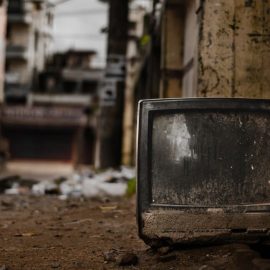

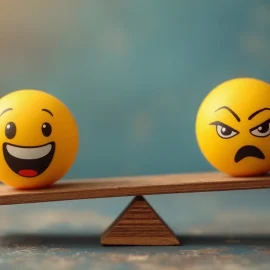

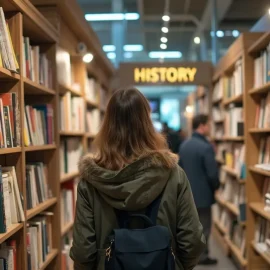
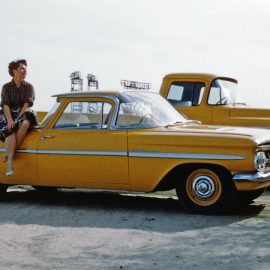
I am a descendent of both Dutch (1680) and British (1800 Armagh Ireland ) settlers.
The Dutch never engaged the Zulu’s or Xhosa’s who were nearer (1000km) in any war as they were only interested in 1652 of creating a refueling station for the Dutch East India Co in table bay which is 1600km from Durban.
The Zulu’s never crossed the Umtamvuna river which is the border of the Transkei (Xhosa homeland) and it is a fact that the Pondo King traded land between the Umzimkulu river and the Umtamvuna river with whites to create a buffer zone against Zulu raiders.
It was the British that engaged both the Xhosa and the Zulu’s in a series of wars and in particular for the purpose of protecting the British settlers IN 1820.
Apartheid had nothing to do with the hatred between the Zulu and the Xhosa as they were sworn enemies long before and you are reminded that the second Zulu civil war ended in 1879 and had nothing to do with whites let alone apartheid (1948) and had its roots in the assassination of Shaka (1840).
there was frequent fighting between the Zulus and Xhosa’s on record on the gold mines in 1900 records and still exists today with the Xhosa and Zulu factions of the ANC
I suggest you read up on the Mfecane which is Africa’s biggest genocide (not Rwanda) of 1million deaths on record perpetuated by the Zulu’s which depopulated the east side of what is now South Africa and displaced other tribes which is where the Matebele tribe in Zimbabwe originated from.
The black tribes in South Africa only got a written language 200 years ago and it was the Scottish missionaries of the 1820 settlers that translated their spoken word into a written word. So don’t think in 1912 one man one vote was an option because even today 2020 tribal law is still very much in influence in the traditional tribal areas.
Nothing is said of the Anglo Boer which is on record as Britain’s second most expensive war after the Napoleonic war at that time, which which a war relating to freedom from annexation after the biggest gold deposits in history were discovered on their land where they settled.
Once again Americans show there ignorance of the history of South Africa not withstanding that you lived here and if Trevor Noah has indicated otherwise try reading up on some historical facts instead as there is no doubt that the black tribes would have slaughtered each other but for the stabilizing presence of British rule.
Regards
Mike Swanepoel
🤣🤣🤣🤣🤣, are you sure about that. As native South Africans, we know the truth!!!
I was with you, up to this:
“there is no doubt that the black tribes would have slaughtered each other but for the stabilizing presence of British rule.”
That is utter rubbish.
The British did NOT stabilise South Africa. Let’s see: nine Frontier Wars against the Xhosa peoples, over the course of a century. A short, sharp, and brutal war against the Zulu. And then the South African War, which affected black and coloured South Africans every bit as much as whites: scorched earth, blockhouses, concentration camps. And why? Greed for gold.
Individual Britons did many fine things for our country, but there is ZERO reason to glorify British imperialism.
PS The Mfecane did kill a lot of people, but the lie that it completely depopulated vast swathes of South Africa was propaganda used by white settlers to justify their wars against the black peoples (odd that we felt any need to justify those wars, given Europe’s history of warfare).
In fact, let’s consider this: the Xhosa had strict rules around warfare, such as killing only combatants, waging war only at certain times of the year, and not using tactics considered underhanded. It was the British who introduced the Xhosa to the idea of total war (which appalled them).
Thank you Mike for clearing some true facts about our Country’s history. I am Dutch & German descendant and my husband French & Scottish. We are Afrikaans speaking South Africans. We love our beautiful country. But we despise the lies that’s been told as “history” in our “new South Africa” You cannot change history, nor lie about it, then it’s a fable. Stay true and learn from it.
Some more facts for balance:
1. There are always divisions and animosity between all groups of people in South Africa, (or America and elsewhere in the world, owing to human fallibility). In S.A. they have always been there among all groups, greatly including between the English and the Afrikaans speaking people up to today They are natural among human beings as all human beings are fallible.
2. What apartheid did, as everybody here knows, was to do its best to cover up these divisions, and enforce some unity between the two main groups of White people. It succeeded considerably because of the strong force of being white. Linguistically, and culturally, it’s another story. Among others, one need only listen to stories of how difficult things were for some English speakers to be forced to learn in Afrikaans, for example. So, nobody was angelic in their enforcement of their agendas.
3. While Apartheid “ united” Whites based on this colour feature, it deliberately used the natural divisions among Africans (which it camouflaged behind whiteness and Europeanness among whites, as in “Europeans Only” signages) to deepen animosity among Africans in South Africa. That is why it came up with the policy of separate development. This meant separating Whites from Blacks, firstly. It (Apartheid) went further, among Blacks, to negatively use the differences of language and culture among them, i.a., to accentuate political rivalry and deepen the divisions that originate from human fallibility, which it sought to reduce or control within the White race.
3. The title of the book concerned, about Trevor Noah, is just a sensationalised call for attention to itself.
4. Please let us realise that each side has grievances against the other because no side is angelic, and stop poking at one another while denying obvious truths but exaggerating those of the other side. Let us learn to accept and treat one another as human beings, all of whom are fallible.
Absolutely, Buyiswa. I disagree with you here and there, but no matter: I agree on most of what you’re saying.
Division and enmity is the natural state of sinful humanity, and why would Mzansi be any different?
I have Indian and Chinese and Nigerian and Ugandan and Xhosa and Pedi and Tswana and Sotho and Malawian and Afrikaner and Japanese and English and Dutch and Taiwanese and Bolivian and American friends, ranging from their late teens to their seventies, not because I’m some sort of amazing, but because of the blood of Jesus.
His Bride is made of all nations and peoples and tribes and tongues, because he extends his invitation of forgiveness and relationship to us all.